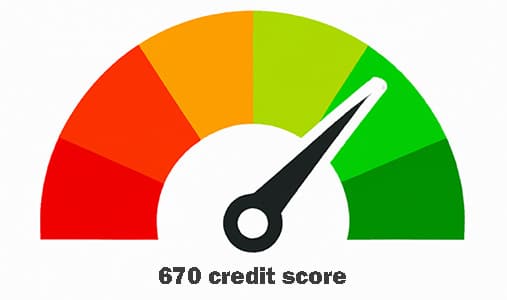Credit Rating – How does it affect bad credit loans?
Your credit rating is one of the most important factors that lenders look at when considering your loan application, credit rating and credit score is the same thing in connection to bad credit loans.
Simply put, your credit rating is a numerical representation of your creditworthiness. Lenders use this number to determine whether or not you’re likely to repay a loan on time. In general, the higher your credit rating, the lower the interest rate you’ll be offered on a loan.
How does credit rating affect bad credit loans?
While your credit rating is important, it’s just one piece of the puzzle when it comes to getting a bad credit loan. Lenders will also consider your income, employment history, and other factors when making their decision.
However, if you have a low credit rating, it could make it difficult to get approved for a loan—or could result in you having to pay a higher interest rate.
That’s why it’s so important to understand what goes into your credit rating and how you can improve it. Keep reading to learn all about credit ratings!
What’s in a Credit Rating?
Your credit rating is made up of several different components, including:
- Your payment history: This includes whether or not you’ve made your payments on time and in full.
- Credit utilization: This is the amount of debt you have compared to the amount of credit available to you. For example, if you have two credit cards with a combined limit of $1,000 and you’re carrying a balance of $500, then your credit utilization ratio would be 50%.
- Credit history: This is a record of how long you’ve been using credit.
- New accounts: If you’ve applied for several new lines of credit recently, this could impact your score negatively.
- Types of credit used: This refers to the mix of different types of debt you have, such as revolving debt (e.g., credit cards) and installment debt (e.g., student loans).
How Can I Improve My Credit Rating?
There are several things you can do to improve your credit rating, including:
- Making sure you make all your payments on time and in full. This is the single most important factor in determining your score.
- Keeping your balances low relative to your credit limits. aim for a utilization ratio below 30%.
- Paying off debt rather than moving it around by transferring balances or opening new accounts.
- Having a mix of different types of debts, such as revolving and installment debt. This shows lenders that you’re capable of managing different types of debt responsibly.
What is the difference between Credit rating and Credit score?
Credit ratings, often expressed as a letter grade from AAA to D, are used to assess the ability of government entities and larger businesses to repay monies borrowed.
Typically, the higher the rating, the lower the interest rates they may pay.
On the other hand, smaller businesses as well as individuals rely on a credit score as an assessment of their ability to manage debt. A numerical score is assigned based on numerous elements such as payment history, credit inquiries and utilization rate. Whether a business or individual consumer has access to financial products can depend heavily on one’s credit rating or score.
Conclusion
A good credit rating is important if you want to get approved for a loan with a low interest rate. Your credit rating is made up of several factors, including payment history, credit utilization, and history. You can improve your credit rating by making all of your payments on time and in full, keeping balances low relative to your limits , paying off debt rather than moving it around ,and having a mix of different types of debts . By following these tips ,you can improve your chances of getting approved for a loan at a conventional bank .

